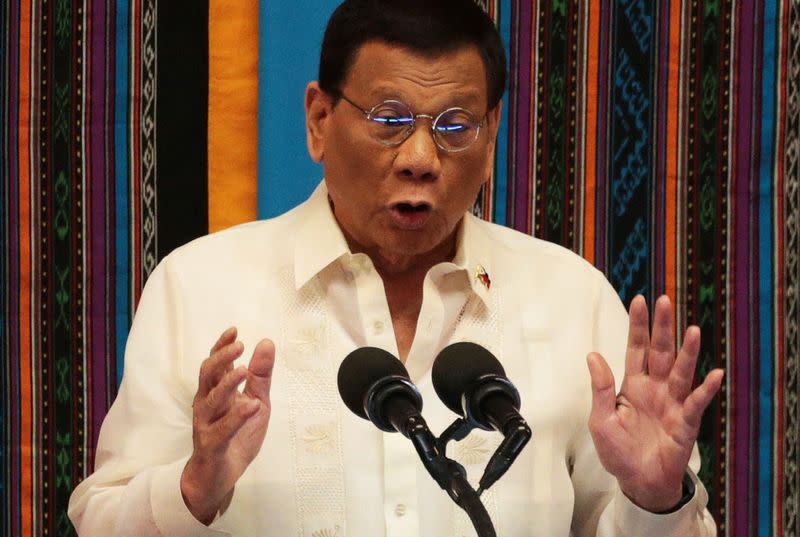Philippines eases one of world's toughest curbs amid spike in coronavirus cases
By Karen Lema
MANILA (Reuters) - Philippine President Rodrigo Duterte eased one of the toughest and longest lockdowns in the world for residents in the capital Manila from June 1, even as the country saw its biggest spike in coronavirus cases on Thursday.
The Philippines reported 539 infections on Thursday, the highest daily tally since it recorded its first case of the coronavirus in January. The new cases brought the nationwide tally to 15,588, of which 921 have led to deaths.
"For me, this does not look bad," Duterte said in a late night televised address, citing what he described as the country's low mortality rate.
His health minister, Francisco Duque, said 90% of the country's COVID-19 cases are "mild," and only less than 2% are "severe and critical."
Manila's lockdown will this weekend surpass the 76-day quarantine of Wuhan, the Chinese city where the first outbreak of the coronavirus was detected.
The easing could help to reduce damage to an economy that is facing its deepest contraction in 34 years. The economy unexpectedly shrank 0.2% in the first quarter and is expected to fare worse in the second quarter as the pandemic-induced lockdown shuttered businesses and sapped domestic demand.
Mobility data from Apple for people driving shows how sharply activity slowed in the Philippines and how low it has remained compared to countries which also imposed tough lockdowns such as Italy and India.
Philippines lockdown one of world’s toughest: https://tmsnrt.rs/3gt9P60
The more relaxed rules will be in place from June 1 to 15, and local officials can still place communities deemed as high risk under lockdown.
Health authorities have conducted nearly 290,000 tests since January, equivalent to about 0.26% of the 107 million population.
Gatherings of up to 10 people will be allowed. Workplaces, shops and some public transportation will reopen and movement in and out of Manila will be permitted, provided the people wear masks and observe social distancing.
Schools, universities, tourist destinations and dine-in restaurants will stay closed, however, while stay-at-home orders will remain for the elderly and children.
(Additional reporting by Neil Jerome Morales; Writing by Karen Lema and Martin Petty; Editing by Ed Davies, Raju Gopalakrishnan and Kim Coghill)



